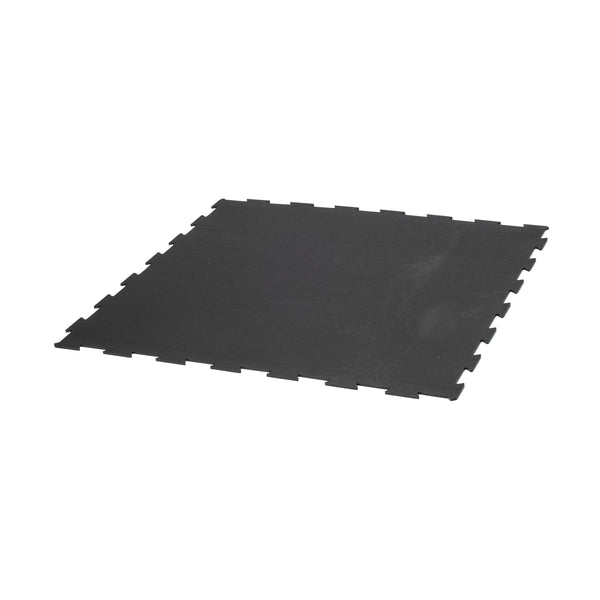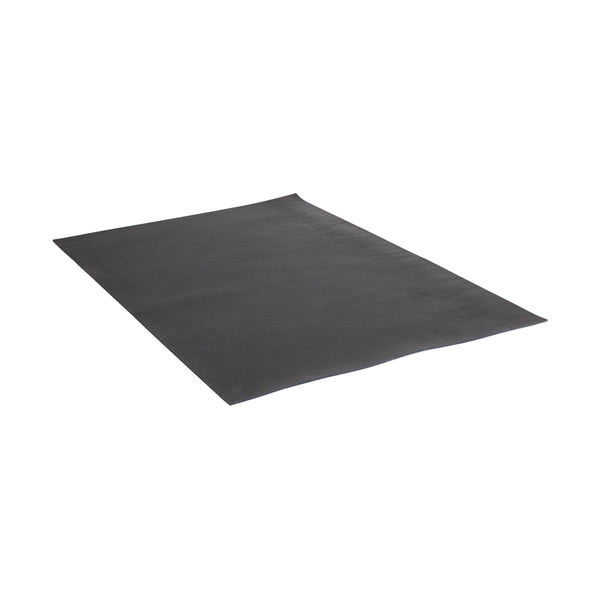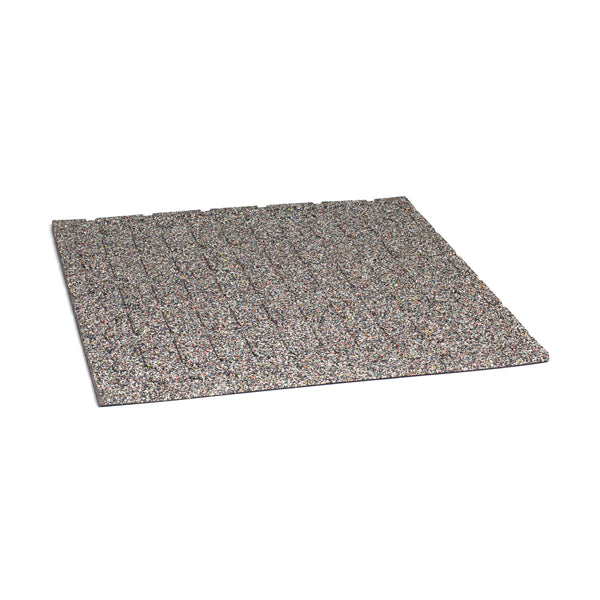So, you’ve finally decided to stop hitting the gym and bring the gym to you. Goodbye, crowded locker rooms and hello, flexing in front of the mirror without judgment!
But before you start bench-pressing your couch, let's talk about the unsung hero of your home gym setup: the flooring. Yes, the cushion beneath your muscle-crushing feats…er….feet? The unsung guardian of your dropped dumbbells. The protector of your shins from wayward kettlebells.
Let’s dive into the world of home gym flooring thickness and find out what suits your sweat-inducing sanctuary.
Before we embark on the journey of "how thick," let’s decipher the variety of gym flooring options awaiting you. Foam tiles are like the marshmallows of the gym flooring world – cushy, delightful, and you kind of want to sink your teeth into them (please don’t). These are excellent for bodyweight exercises, yoga, and anything that doesn't involve Hulk-like weights crashing down. They come in different thicknesses, but for our main event, aim for at least 3/8 inches. Rubber rolls or rubber mats are like the dependable friends who have your back through thick and thin.
They handle dropped weights like a champ and provide ample cushioning for heavy lifting sessions. Thickness here is the name of the game, and a solid ½ inch to inch thickness will keep your floors (and sanity) intact.
These tiles are like Legos for grown-ups, but instead of building castles, you’re constructing the perfect platform for your gains. They’re versatile and come in varying thicknesses but in the realm of "how thick should home gym flooring be," go for 3/8 to 1/2 inch for serious workouts. Don't want to commit? Enter portable mats, your spontaneous workout companions.
These mats are like a quick fling – you lay them down, have an intense session, and then neatly roll them up and tuck them away. With thicknesses ranging from 1/4 to 3/8 inch, they're great for temporary setups, especially when you're craving a change of scenery.
Now, let’s uncover the juicy bits – how thick should your gym flooring be? Well, dear home gym owner, it all boils down to a few key considerations: Are you into the zen-like flow of yoga, or do you prefer deadlifting heavier-than-your-soul weights? Different training styles have different demands. For gentle workouts, like pilates or stretching, 3/8 inches of foam might just cradle your aspirations.
However, if you plan on recreating Thor’s hammer slams, aim for ½-1 inch of rubber to soak up the impact. Ah, the sweet sound of silence – your neighbors will thank you for considering this. Thicker flooring means better noise absorption, especially when you're practicing your elephant-inspired burpees or rearranging your dumbbell collection. If you're not into getting noise complaints at odd hours, opt for rubber rolls at 1/2 inch.
Oh, and by the way, it’s not a bad idea to throw down some silencer pads in addition to your thick flooring when neighbors or sleeping children are around.
Is your gym on the upper floor, hovering over an abyss of sensitive eardrums? Or is it chilling on a concrete slab, daring vibrations to come it's way? The base surface matters. For hard surfaces like concrete, opt for 1/2-inch rubber rolls to give your joints some love. If you're on a wood floor, 3/8 inch might suffice – just be gentle with the deadlifts, yeah?
Congratulations! You've now graduated from Home Gym Flooring 101 and are ready to flex those decision-making muscles on bellsofsteel.com. Here's a sneak peek of what awaits: For the well-rounded home gym warrior who dabbles in both heavy lifting and graceful stretches. Your floors and ears will send you virtual thank-you notes.
Our Rubber Flooring Gym Mats are 3/4″ thick with vibration-reducing rubber to protect your plates, floors, and sanity. Feeling spontaneous? These Cardio Machine Floor Mats are like your workout sidekicks, ready to roll with you wherever your fitness journey takes you. These bad boys are ¼ inch thick with a textured surface. Embrace their portability and never be tied down again—no cardio machines required.
One caveat: these mats aren’t meant for shock absorption over 100lbs so keep that in mind.…that’s what that means, right?
These silencer pads are a must-have if you need extra protection for big lifts or want to combine the best of both worlds when using Cardio Machine Floor Mats. We can’t promise your neighbors will love you for using these, but they’ll complain less about this specific issue.
Q: Can I just put cardboard down and call it a day?
Well, you could, but your floor might look like a Jackson Pollock painting after a week. Plus, your cardboard gains won't impress anyone.
Q: Is installing the flooring a DIY thing?
Absolutely! It's like adult-sized Lego building. Just remember, the goal is a flat and even surface, not recreating the Tower of Pisa.
Q: What's the cure for sore muscles?
Laughter, hydration, and an embarrassing amount of Netflix. But really, gym flooring can provide cushioning and shock absorption to help prevent injuries and post-training soreness. Also, proper post-workout nutrition and stretching. There you have it, budding home gym owners! Your journey into the world of home gym flooring thickness is complete. May your lifts be heavy, your stretches be limber, and your floors be adequately cushioned. Now, go forth and conquer, one rep at a time! 🏋️♂️



